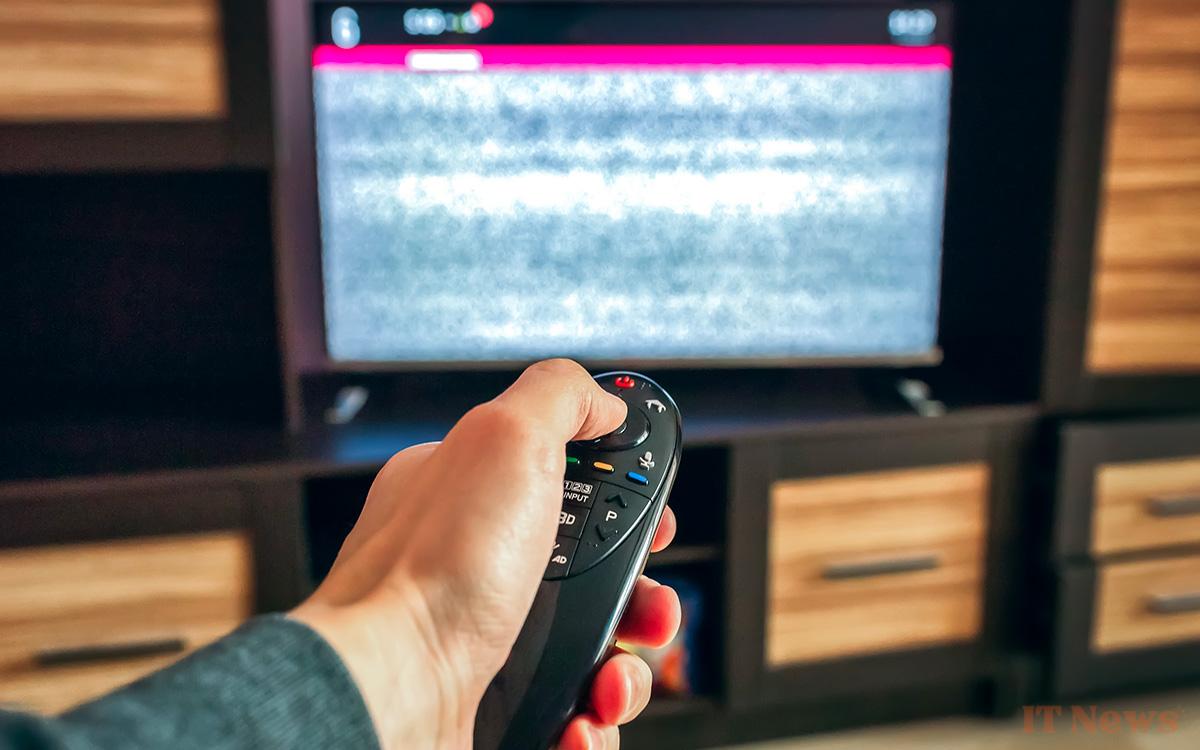Jittery picture, loss of certain channels, sound problems... Has your TNT been completely unblocked for a few days? Your antenna isn't the problem. We'll explain everything to you.
If you receive DTT via a rake antenna, you may have experienced some problems with your TV signal over the past few days: poor picture quality, choppy sound, partial loss of channels, etc. Don't worry, however, your antenna hasn't necessarily given up the ghost.
Here's why your TNT is going off the rails
As ANFR (editor's note: the National Frequency Agency) explains, the weather is indeed responsible. More precisely, it's a phenomenon called “exceptional propagation”. In this article, we will explain exactly what it is, and above all, provide you with a simple solution to avoid falling victim to it.
While the phenomenon of exceptional propagation is generally unknown to the general public, many users have noticed its effects:
- poor reception of TV signals (jerky image and sound, loss of certain channels, etc.)
- receipt of foreign radio broadcasts or TV channels long distances from the borders
- surprisingly poor reception of the mobile network in dead or poorly covered areas
Also read: TNT will change in 2025, here are the new channels for your favorite channels
As ANFR points out in a comprehensive article, the evolution of signal strength (or its degradation) is linked to several factors. They can also be grouped into three distinct sets:
- conditions intrinsic to the waves such as frequency and polarization
- geological or human conditions (relief, distance, buildings, etc.)
- atmospheric or climatic conditions (refractive index of the atmosphere, sudden changes in temperature or pressure, etc.)
Now, while the first two almost never vary, this is obviously not the case for the weather. And to put it simply, weather conditions can modify the propagation path of a signal.
Everything happens in the troposphere
You should know that DTT signals travel in the troposphere, the lower part of our atmosphere. Normally, the signals follow a straight path to go from the DTT transmitter to your antenna. But in the case of particular weather conditions (rapid warming of a body of water, sudden rise in atmospheric pressure or temperatures, rapid drop in the barometer, etc.), the signals will adopt a sinusoidal path. As the ANFR explains, these “inversion zones” of the signal in the troposphere “form conduits in which the waves propagate, guided by the walls of the conduit, with very low attenuation and therefore over very great distances. It then becomes easy to receive waves coming from distant distances, well beyond the horizon, or else to see interference appear.” src="https://wp-pa.phonandroid.com/uploads/2025/06/tnt-anfr-meteo.jpg">
According to numerous studies on the subject, periods of exceptional propagation are generally favored by anticyclonic conditions. In some cases, the propagation conduits produced by this phenomenon can extend over tens, even hundreds of kilometers. This is why you can sometimes receive British channels while in Calais or Spanish channels while in Bordeaux or Perpignan.
What to do during these periods of interference?
Let's put an end to the suspense, there is nothing you can do to counter the effects inherent in this phenomenon. During these episodes, the ANFR advises avoiding at all costs performing a new channel scan on your TV or changing the installation of your antenna. This is logical, in short, since the signals are already disrupted, you will not improve the situation, quite the contrary. “These actions could result in the loss of all your channels and make it difficult to return to normal reception,” the government agency assures. You will therefore have to be patient for a few days, until the weather conditions stabilize again.
IPTV, a simple solution to no longer be a victim of the weather
However, be aware that there is a simple solution to never fall victim to this phenomenon again: switch to IPTV or Internet TV. As a reminder, IPTV (Internet Protocol Television) allows you to broadcast television content via a high-speed internet connection instead of other traditional methods (cable, satellite, TNT or terrestrial waves).
Therefore, IPTV is not affected by weather conditions. Today, the simplest (but also the most expensive) option to enjoy IPTV is to use a triple Play offer from an operator (internet box, telephone and TV decoder). And if the idea of subscribing to a Free, Bouygues, Orange or SFR subscription does not appeal to you too much, you can also enjoy IPTV by opting for an Android TV box or Apple TV such as the Apple TV, the Amazon Fire TV Stick or even the Google Chromecast or TV Streamer (4K).






0 Comments